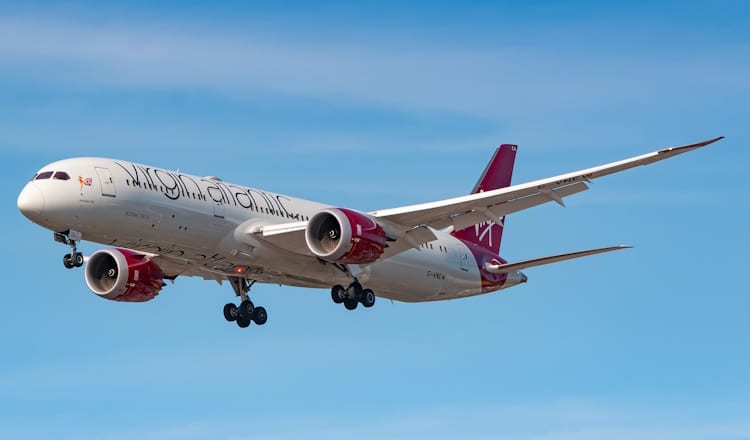
Virgin Atlantic has become the first commercial airline to operate a flight using 100 percent sustainable aviation fuel. The Boeing 787 Dreamliner made a flight from London to New York. The aircraft flew on fuel that consists of 88 percent oils and fats and 12 percent corn residues. There were no passengers on board because it was a test flight, says Joris Melkert, aviation expert at TU Delft, to the NOS. “Virgin flies with special permission. If the fuel were 50 percent sustainable, they would have been allowed to take passengers, but they are not allowed to take passengers with 100 percent.” Richard Branson, the founder of Virgin, wanted to use the flight to show that it is possible to fly with sustainable fuel. At the same time, he wanted to draw attention to the high price of these fuels. The price is currently four times higher than normal kerosene. Branson would like to see governments provide more subsidies for this. Branson, who was on board himself, was proud of the result. “The world will always assume that something can’t be done until you do it. The spirit of innovation is to just do something and try to prove that we can do things better for the benefit of everyone.” Virgin Atlantic has challenged the status quo in aviation since its inception in 1984 and pushed the airline industry to do better, says Branson. According to the founder, pioneering spirit remains the beating heart of Virgin Atlantic, as it pushes the boundaries. From the upgrade of the fleet to the use of sustainable fuels.
KLM In 2011, KLM was the first commercial airline in the world to operate a flight that partly flew on more sustainable aviation fuel, made from used cooking oil. KLM is currently adding 1 percent sustainable aviation fuel (SAF). By 2030, the share of SAF must be 10 percent, Bas Gerressen, director of KLM Netherlands, recently stated at the ANVR congress in northern Spain. (Photo Shutterstock).